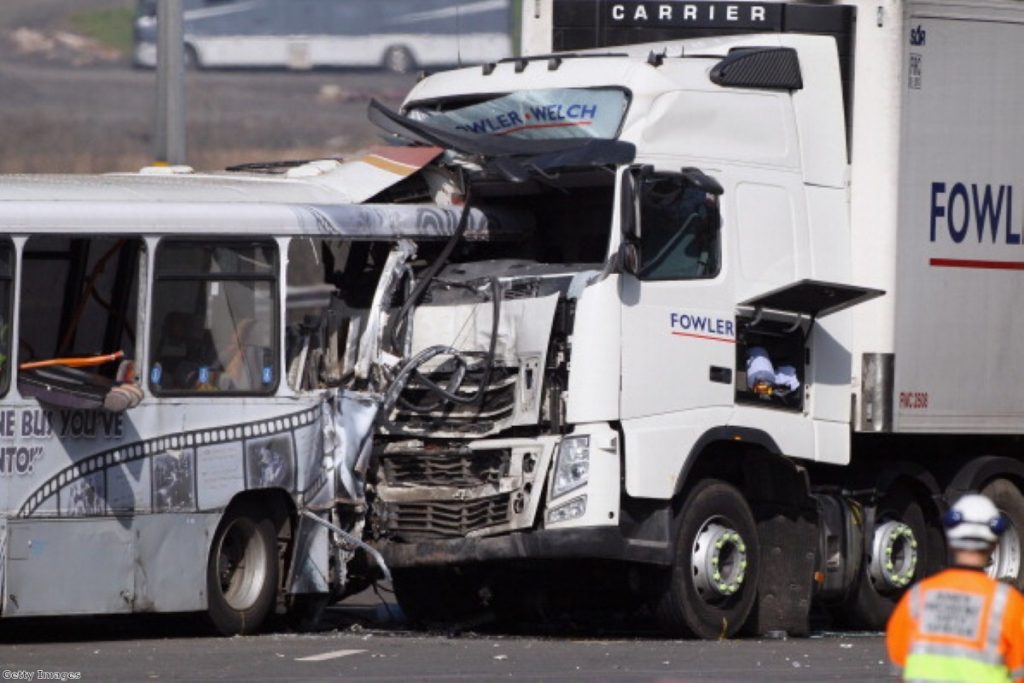Raising speed limits for lorries is evidence-free policy at its worst
The government is increasing speed limits for lorries on single carriageways to 50mph, supposedly as a safety measure.
According to the Department of Transport (DfT), the move will reduce "dangerous overtaking" and therefore make our roads safer. So will it?
Well not according to the DfT's own impact assessment which found the policy will actually make our roads significantly more dangerous.
They found that the number of serious accidents involving heavy goods vehicles (HGVs) travelling at current limits will rise by up to 19%. Around three extra people will die a year as a direct result of this policy.


That is likely to be a serious underestimate.
Consultants hired by the DfT also found that the main impact of the move will be to increase the speed of other vehicles on the road and therefore increase accidents overall. They recommended the government do further studies to calculate the number of additional deaths and serious injuries this will cause. No further studies have been done.
The report also found that 50mph is the tipping point (quite literally) when HGVs become much more likely to roll over on corners. Again, there has been no further study to calculate what effect this will have on increased road accidents.
So what of the government's claim that the policy will reduce dangerous overtaking? This claim appeared in every ministerial announcement and every newspaper article about this policy yesterday. So is it true?
Apparently not. The DfT consultants found that while it "seems likely" that increasing speed limits will reduce dangerous overtaking, it is equally possible that it will simply make dangerous overtaking more frequent and more risky as vehicles are forced to overtake HGVs at higher speeds.
There is absolutely no good evidence that increasing speed limits reduces dangerous overtaking. There is on the other hand, very good evidence that increasing speed limits leads to increased accidents and fatalities.
Multiple studies in multiple countries have found that serious accidents and deaths increase exponentially as you increase speed limits.
Even the DfT acknowledge this in their own impact assessment and are forced to conclude that claims about reducing crashes through increasing speed limits may be "entirely spurious."
So how has this "entirely spurious" claim become the centrepiece of a major change to British transport policy?
The department's press release yesterday includes a quote from Geoff Dunning of the Road Haulage Association in which he praises the "evidence-based decision by ministers" to increase speed limits.
There is absolutely nothing evidence-based about this decision. The government commissioned experts to find evidence that increasing speed limits would make our roads safer. The experts found it would make our roads more dangerous. The government commissioned experts to find evidence that the policy would reduce dangerous overtaking. The experts found it may make overtaking even more dangerous.
Governments often come up with policies and then try to find evidence to support them afterwards.
This is even worse. Here they have found evidence which demonstrates the opposite of what they were looking for, but they are continuing with the policy anyway.
Getting this right matters. Around 2,000 people are killed and 200,000 injured every year on Britain's roads.
All the evidence shows that increasing speed limits will make this situation worse. The government are pretending otherwise. This is evidence-free policy making at its worst.












